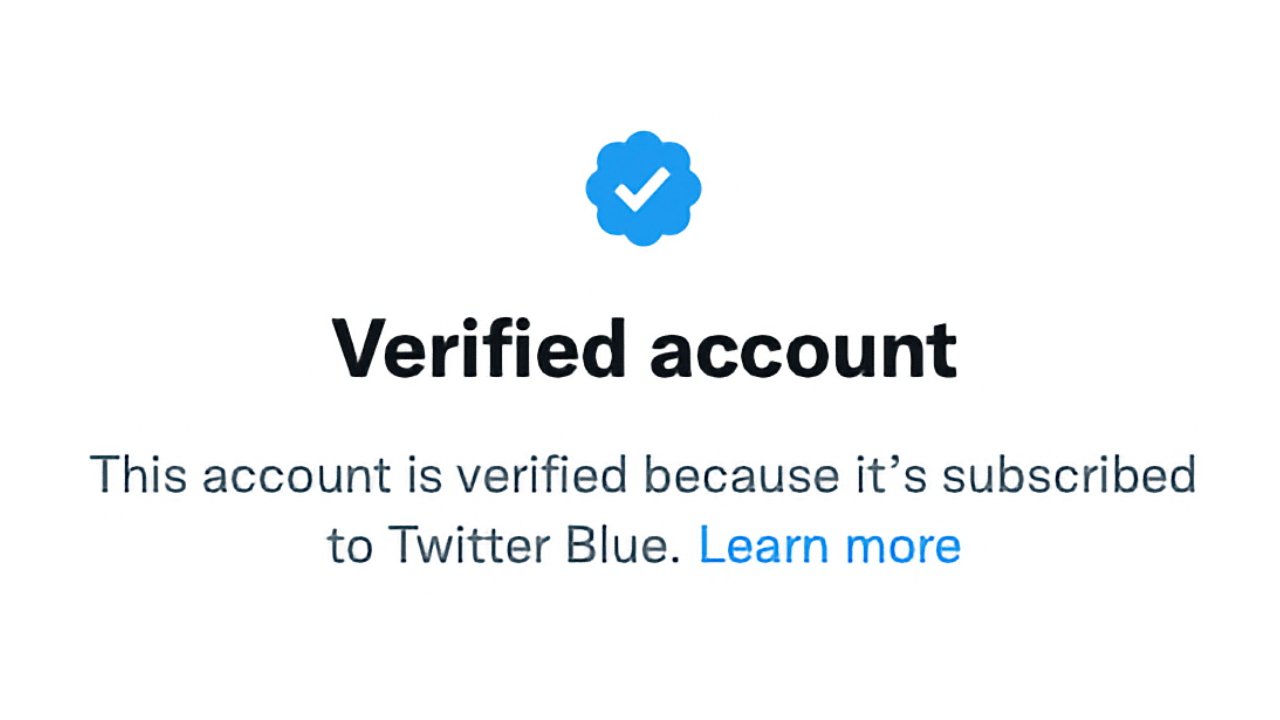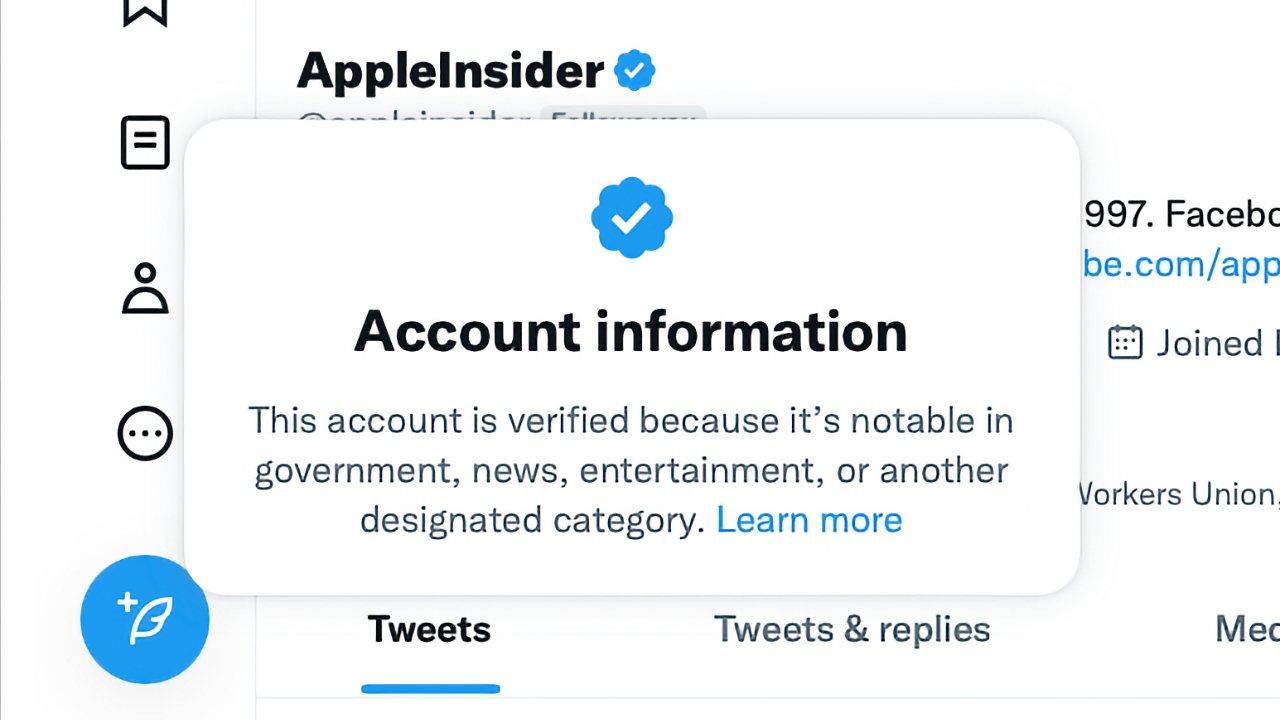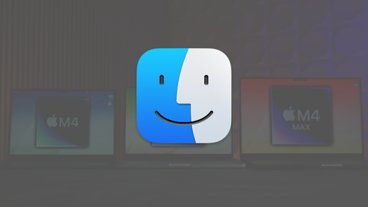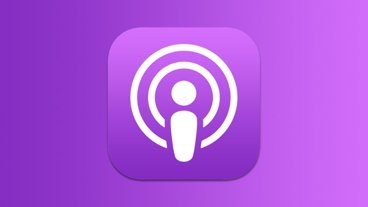Spammers are already filling up Twitter with fake accounts since Elon Musk scuttled the service's verification process, and they are very, very good at fooling people. Here's what you can do to see what's real.
Previously, "Verified" meant a celebrity really was the celebrity they claimed to be, or the company was the company it said. Now it only means that someone has been motivated to create a Twitter account, and able to pay $8 per month to get the famous blue Verified symbol.
Hopefully Elon Musk's pitiful grab for $8/month from users is getting him the income he wants. Because no spammer in the world is going to hesitate at paying that trivial amount, not when the rewards are potentially enormous for them.
To be clear, there are now fake Twitter accounts that are being created for comedy, or to specifically call out just how dangerously asinine the new policy is. But there are also spammers who are hoping to clean up before the opportunity is taken away from them.
And they are doing it all so well that if you haven't been fooled yet, you will be.
First account is the verified official one. Second is a $8 fake thanks to the Musk subscription.
— Pete Fraser (@petefrasermusic) November 10, 2022
Easy to tell when you look at the follower count, very, very hard to tell when shared into your feed. Impossible actually without clicking through.
HT @meemalee for spotting. pic.twitter.com/uKumOYRTeI
It's hard to conceive why a spammer would want to be mistaken for the real Apple TV+ Twitter account, but they did and at first glance, it's impossible to tell which is the real one.
In practice, Twitter may have done something about this specific example as, despite being widely reported, the fake account does not appear to still exist. Other reported spam versions of politicians' accounts have definitely been removed.
Nonetheless, the ability to appear totally convincing like this is simply frightening.
However, there are measures you can take, starting with being suspicious of every Twitter account you read. Unless, that is, you are already following it and you go directly to that account to check.
How to verify that a 'Verified' account is real
- Check the spelling of the name
- Check the follower count to see if it looks suspiciously low
- Go to the account page and click on the blue Verified logo
That first one about checking the spelling sounds obvious, but look again at the fake Apple TV+ account above. It's not actually called "AppleTVPlus," but instead "AppleTVPIus" — the difference is in the last few characters.
Rather than spelling "Plus" with a lowercase L, the spammer spells it with an uppercase I.
Then the follower count sounds more obviously useful, but it's not foolproof. Even so, when an account is an Apple one and it has only 135 followers, it's a fake.
Last but for now best resort
The spelling option is one you could, theoretically, see right there in your feed. The number of followers is shown plainly when you go to an account's own page.
But that account page is where — at the moment — you can best find out the truth. Both real and fake accounts can now have the blue Verified icon, but click on it.
If the account is real, is genuinely verified by Twitter, then at the moment you see text that explains why. "This account is verified," it says, "because it's notable in government, news, entertainment, or another designated category."
That is the text that all previously verified accounts show. However, Elon Musk has said verified accounts will have a limited time in which to start paying, or they will lose their blue mark.
It's not clear what happens when they do pay, if they do. However at the moment, clicking on the blue verified symbol for an account that pays, gives you a very different explanation.
"This account is verified because it's subscribed to Twitter Blue," it says.
There is nothing to say that legitimate users and genuinely official accounts can't pay Musk's fee to keep their status. But it is certain that spammers will.
It has to end somehow
That fake Apple TV Plus is a good example of just how well a spammer can fake an account. But it's also an example of how spammers can target any account, not just one that would appear an obvious candidate like an online store.
And it's also a good example of how the fake can appear innocuous. But at some point it will include a link that you really, really do not want to click.
Musk is clearly aware of the issue, because according to NBC News reporter Ben Collins, says so.
Elon in a Twitter space right now: "If someone tries to impersonate a brand, we will get rid of them and we will keep their $8. And they can keep doing that and we will do it again."
— Ben Collins (@oneunderscore__) November 9, 2022
You've got to be desperate to be grabbing $8 a pop when you're trying to save a million dollars a day, but it does all count - and, besides, Elon Musk's budgeting is his own business. Except it's also ours because what this explicitly says is that Musk will not make any attempt to prevent such spamming.
Rather, he is saying that people can spam away and at some point, Twitter will remove them as it gleefully pockets its enormous $8 profit. What Musk is not saying is how they are eventually being spotted, and he has already shed at least most staff whose job it could have been to do this.
In Musk's defence, did create a new style of verification called "official," which would have gone next to the blue verified icon.
It actually did go next to the blue icon, just incredibly briefly because Musk created it — and then killed it within ours.
He did not kill it off because the "official" tag was in some way more confusing than letting spammers masquerade as whoever they like. Nor because he realised that this whole enterprise was entirely devaluing the Verified icon, the very thing he was trying to put a value on.
No, Elon Musk killed off the new "official" icon because if your account was marked as official, you would have no need to pay for a "verified" icon. He's grasped that the "official" icon devalued the "verified" one, but he hasn't understood that solely paying to be verified destroys any possibility of trust.
 William Gallagher
William Gallagher










 Amber Neely
Amber Neely
 Malcolm Owen
Malcolm Owen


 Christine McKee
Christine McKee





-m.jpg)





